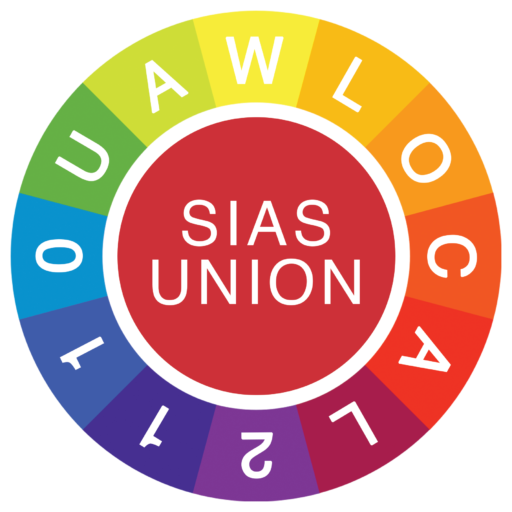Fact Checking Studio’s Anti-Union Campaign
We are disappointed that Studio’s response to our petition was to retain a management attorney whose website boasts about their experience fighting unions. Studio hired an additional outside “HR” consultant to run mandatory meetings with a powerpoint presentation, containing misleading and distorted information about unions.
Studio’s outside consultant has presented misleading information in these meetings. We’d like to fact check a few things for you:

“The union will impose rules.”
This is incorrect! A union’s purpose is to create a better workplace for the staff. It is up to us to decide what we all want to see in the contract and what is important to us. There is no reason for us to negotiate for rules that no one wants. In many Local 2110 contracts, members have successfully negotiated for more flexible schedules. Without a union, Studio can impose restrictions and rules at any time it wants
“Unionizing means dues, fines, and initiation fees.”
The dues in our union are 2% of our gross earnings from Studio, and we do not pay any dues until a contract has been negotiated and voted on by us, the union membership of Studio. We will know what is in our contract before we vote, and it will only be ratified if a majority of us vote to accept it. Thousands of our counterparts in schools, cultural institutions, and non-profits in New York City have voted in unions– and pay union dues– because they know that the protection and improvements they win through their union contracts make every penny worth it.
There are no initiation fees for newly organized union members; employees who are hired after a first contract pay a one time initiation fee of between $10-$50, again, based on earnings.
“The union is an outside third party.”
The Union is us, the union members of Studio. We will elect our own union negotiating committee, decide what to negotiate for, and vote on our own contract. After we have a contract, we’ll elect our own stewards and participate with union stewards from other workplaces in our larger local union. Local 2110 representatives will assist us at every step, but we, the unionized staff and teachers of Studio, will make decisions for ourselves. As teaching artists and administrative staff, we have a great deal in common with the union members at other Local 2110 workplaces, like MoMA, NYU, Columbia University, HarperCollins, the ACLU, the New-York Historical Society, the Brooklyn Academy of Music, and many more. By joining together as part of a larger union, we can all support each other.
“Unions don’t protect jobs.”
MoMA: To date, no unionized staff at MoMA have been laid off during the pandemic. All members of our union, including front-facing staff who cannot work remotely, were kept on payroll even when the Museum was closed to the public. MoMA did negotiate an entirely voluntary separation package with its unions that allowed any staff member who wanted to leave to receive severance pay (12 weeks + 2 additional weeks for each year of service), and health insurance for six months.
The New Museum: Due to the pandemic closure, there were furloughs and lay-offs at the New Museum, but because of the union, people received severance pay, and recall rights to return to their jobs if they re-open.
Whitney Museum: The employees who were recently laid off at the Whitney had no union so management made unilateral cuts without negotiations. Most union contracts include layoff protection like notice, severance pay, right to return when jobs re-open, etc. And with a union, management has to share credible information and data to justify layoffs and reductions.
